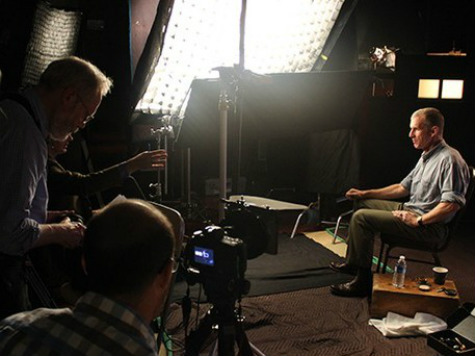As President Obama launches a new campaign against the brutal ISIS militants in Iraq, he may not want to call it a war, but it sure looks like one. And he’s getting a lot of advice from former military commanders, both directly and through the news media.
Speaking to Fox News on Sept. 10 (as quoted by Byron York in the Washington Examiner), retired Gen. Jack Keane, a former Army Vice Chief of Staff, said, “The ground campaign is what is going to defeat ISIS in the end. In that ground campaign, we are totally dependent on surrogate forces. Whether we can do this or not, nobody knows.”
In the same article, retired Gen. David Petraeus was quoted as saying earlier in the summer, “This cannot be the United States being the air force for Shia militias or Shia-on-Sunni Arab fight. It has to be a fight of all of Iraq against extremists, who do happen to be Sunni Arabs.”
Both Keane and Petraeus are among the 11 active and retired U.S. Army generals featured in the National Geographic Channel documentary American War Generals, premiering Sunday, Sept. 14, at 8 p.m. ET/PT in the U.S. (and globally later in the year).
Joining them are retired Gens. Colin Powell, Stanley A. McChrystal, Wesley Clark, George William Casey, Barry McCaffrey; and retired Lt. Gen. Karl Eikenberry. Still on active duty are Gen. Raymond Odierno, Lt. Gen. Michael T. Flynn, and Major Gen. Herbert R. McMaster.
From Vietnam to Iraq and Afghanistan, they review a half-century of American military engagements and strategy, in their own words.
Speaking to Breitbart News and assembled press in July in Beverly Hills, California, Tresha Mabile, who shares executive-producer credits with her husband, author Peter Bergen, explained her philosophy and how she was adapting to changing circumstances.
“Two of the main generals,” she said, “Gen. Petraeus and Gen. H.R. McMaster, had settled cities of Mosul and Tal Afar by using counterinsurgency tactics, and those two cities have been taken over by ISIS. So we brought the show up to date and may update it [more].”
She continued, “The generals do the talking, and their stories are so fascinating, you don’t hear that much from us. We’re pulling it together and stitching the pieces together. But starting with the Vietnam War — they were all involved in the Vietnam War, and the fact that the Vietnam War sort of looms of the thinking, and how the military reacts in the future to conflicts.
“But it’s not us telling you about this story. It’s their stories and their words.”
For example, talking about Operation Iraqi Freedom, McChrystal said, “It’s funny, the U.S. military and the U.S. politicians never talked about losing, but we absolutely knew we could lose. You can lose battles, and ultimately you can lose a war. And in the summer of 2005, that was starkly apparent to me and the people that I served with.”
Said McCaffrey, “I think taking down Saddam was actually the right thing to do. Screwing up the military operation was not. So, I have a permanent sense of hatred for that Secretary Rumsfeld in particular, and these people that got in there and convinced themselves that they could do this with a minimalist approach of military power.”
But in the end, it’s all down to the troops.
As Clark observed, “Winning starts at the bottom. A soldier can overcome incredible issues if he’s well-trained and competent and can put steel on target. That’s the difference in the battle.”
Also on hand in July was McCaffrey, who was blunt in discussing what he felt were failures of Vietnam and what effect they have had over the years, and what effect forgetting the lessons of Vietnam may have.
“I think we’re on the verge, by the way,” he said, “of having the sane thing happen. These kids have been out there now fighting for 12 years. This has been a bloody conflict. We went into downtown Fallujah on the second takedown, and in four days, had 1,200 people killed or wounded Marines and Army. I think there was a sense of caution.
“By the ay, we’re also seeing now generals come along that didn’t serve in Vietnam. None of them. And in many cases, they didn’t fight as company-grade officers. That, in a major way, modifies your view of warfare. Most of us simply want to find other ways to deal with international phenomena, with economic aid, covert action, diplomatic leverage.
“Because, when you pick up the military tool, you’re never sure how it’s going to come out.”

COMMENTS
Please let us know if you're having issues with commenting.